Mysterious tweet signals October surprise could be on the way one month out of US presidential election
A series of October surprise-level bombshells have hit the already tumultuous US presidential election just weeks before voters go to the polls in November.
In the annals of Donald Trump tweets, the single character post of “#” went largely unnoticed outside the most conspiratorial corners of presidential election watchers.
Whether a 4D chess move or a “covfefe” style slip of the thumb, the symbol ignited feverish anticipation of an “October surprise” that would turn around the Republican’s floundering (at the time) campaign and snatch victory from the claws of Kamala Harris.
The dreaded October surprise lives somewhere between an intricately planned conspiracy theory or an unavoidable act of God. Hillary Clinton’s emails in 2016, or the death of Supreme Court justice Ruth Bader Ginsberg in 2020*.
Whatever its providence, the unexpected – if not unplanned – news event can potentially change the course of a presidential race in the days and weeks leading up to the November polls.
In 2024, when there’s been an October surprise-level twist every other week, something incomprehensibly seismic would be needed to eclipse two assassination attempts and the withdrawal of a sitting president. To say nothing of whether “they’re eating the dogs”.
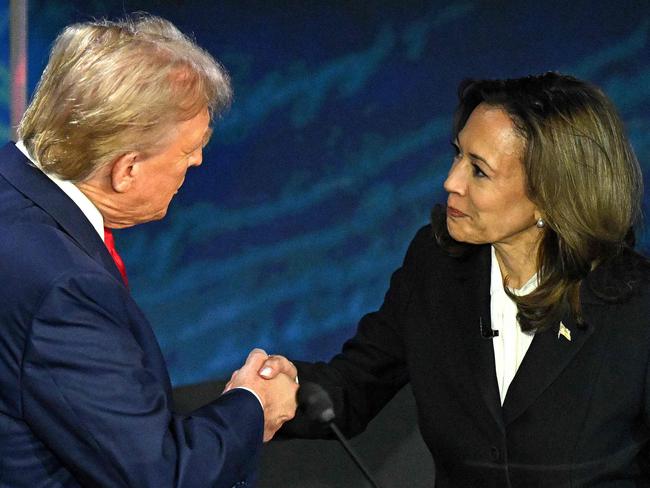
Cue the #. First posted on Friday the 13th, adding to its mystique, the curious character quickly lit up Trumpworld on X/Twitter despite it appearing to have been subsequently deleted from Truth Social, where it was first published.
Most commonly considered a simple hashtag today, in longer-running parlance the “#” is otherwise known as weight in pounds. Maybe a phone number. Or, most ominously: “Checkmate”.
The seemingly innocuous # led to QAnon-levels of speculation about what wild surprise would drop in October. Whether Mr Trump’s # portends its arrival, serious political figures attempt each election cycle to predict how the trajectory of the race could be up-ended
This year, the resignation of Mr Biden and the elevation of President Harris is widely seen as another Hail Mary move if Ms Harris’ polling sinks, according to the editorial pages of Washington insider bible, The Hill.
“The establishment media would get sidetracked with the Biden resignation, as well as the next phase — the introduction of President Kamala Harris,” wrote Steve Krakauer, author of Uncovered: How the Media Got Cozy with Power, Abandoned Its Principles, and Lost the People.
“So don’t be shocked if this cycle’s October Surprise is a new occupant in the White House.”
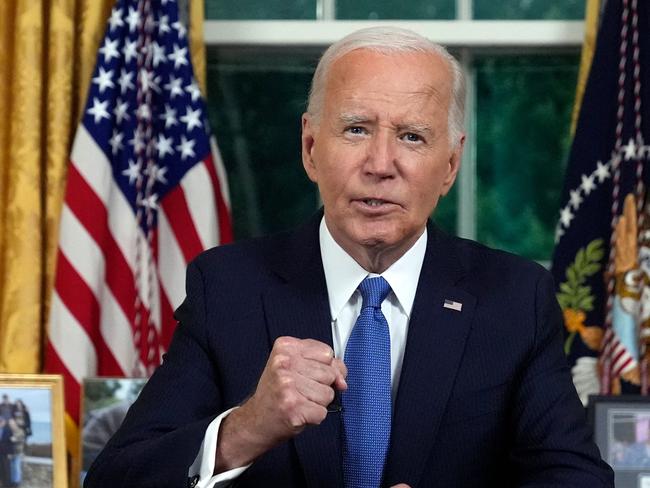
An October surprise in Mr Trump’s favour could be a North Korean nuclear test to sow turmoil in the weeks leading up to the election, according to “six senior US officials” who planted the story in US media. Trump campaign spokesman Steven Cheung responded that “the only October surprise will be the look of shock” when Mr Trump wins.
Other October candidates this year run the gamut. From the increasingly likely: A new indictment in the January 6 “insurrection” case. And the not-so-surprising: Full-scale war in the Middle East. To the truly shocking: A third, successful, assassination attempt against Mr Trump.
Then there’s the potential for a slow-motion scandal. Say, if there was a major Hollywood music mogul, with tentacles running deep into political party elites, who was arrested on sex trafficking charges and had just one way to avoid life in prison. Flip. Name names. Release the tapes.
Most credit the first use of “October surprise” to the 1980 campaign of Ronald Reagan, when campaign manager William Casey coined the term to describe a possible breakthrough in negotiations to release American hostages in Iran.
“The biggest fear in Ronald Reagan’s inner circle is that President Carter will get an unexpected boost in the campaign from an ‘October Surprise,’” The Washington Post wrote at the time.
The negotiations fell apart. There was no surprise. Mr Reagan won the election. Minutes after his inauguration, Iran released the hostages. Days later, Mr Casey became the director of the CIA.
While entering public consciousness just 44 years ago, the October surprise has been a feature of American politics in concept – if not in nomenclature – for almost as long as the US has been a country.
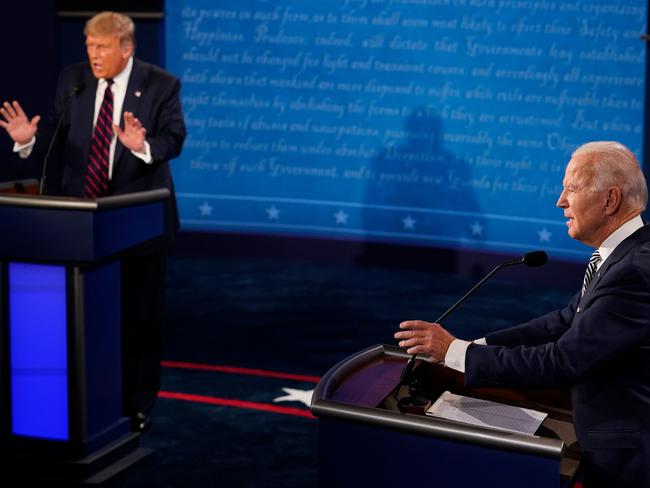
2020: JOE BIDEN VS DONALD TRUMP
The 2020 election cycle had an October surprise-level event every other week: The Covid pandemic. A lockdown economy. George Floyd riots. Mail in ballots. Hunter Biden’s laptop.
Donald Trump contracting – and surviving – Covid was thought to be an October surprise to help him defeat Joe Biden. But another act of God, weeks earlier, later became a major pivot point for the Democrat’s victory.
Supreme Court Justice Ruth Bader Ginsberg died in mid-September. But on October 26, one week before the election, she was replaced by staunch Catholic, Amy Coney Barrett.
The fear of a conservative-leaning Supreme Court overturning the controversial Roe VS. Wade abortion ruling saw Democratic voter turnout exceed expectations. They won the election. They still lost the Supreme Court.
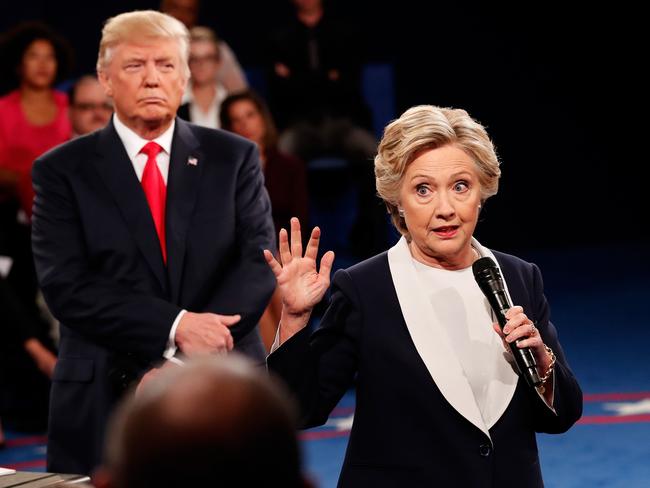
2016: DONALD TRUMP VS HILARY CLINTON
Mr Trump’s cadence of controversies in 2016 peaked with the October 7 leak of the infamous Access Hollywood tape: “You can do anything. Grab them by the pussy. You can do anything.”
Any other candidate, against any other opponent, and it might have been fatal. But the US’s most consequential October surprise came 11 days before the election when FBI Director Jim Comey announced the reopening of an investigation into Hillary Clinton’s private email server.
Ms Clinton, already damaged by a WikiLeaks October 7 release of private emails, never recovered.
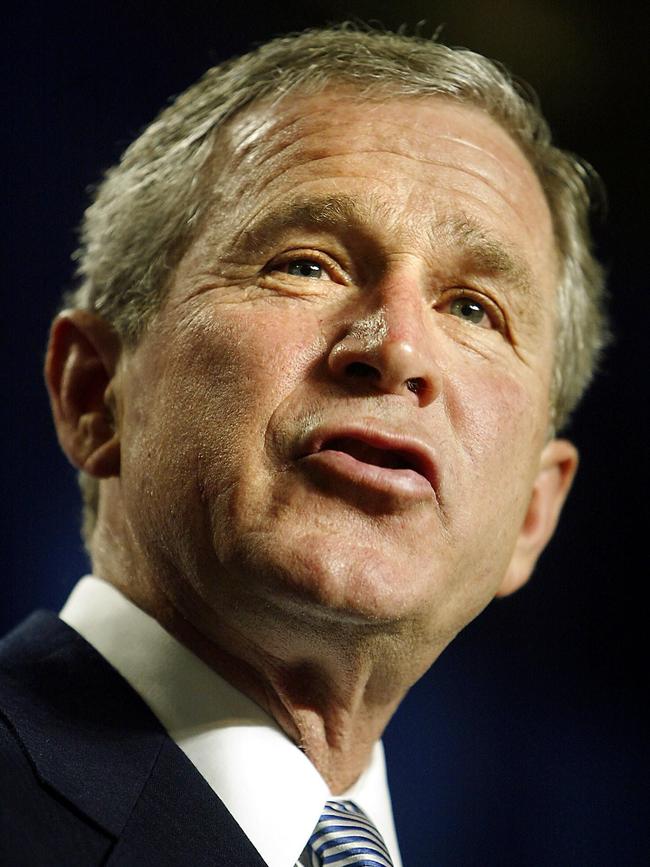

2004: GEORGE W BUSH VS JOHN KERRY
George W Bush and John Kerry were neck and neck in the home stretch when Osama bin Laden up-ended the race on October 29.
The terror mastermind released a 15-minute video saying Americans deserved 9/11. It was the first time bin Laden was seen in three years and the first time he directly admitted to orchestrating the attack. And it all dropped days before the first election held since the Twin Towers came crashing down.
Terrorism and national security were catapulted to the defining issues of the election.
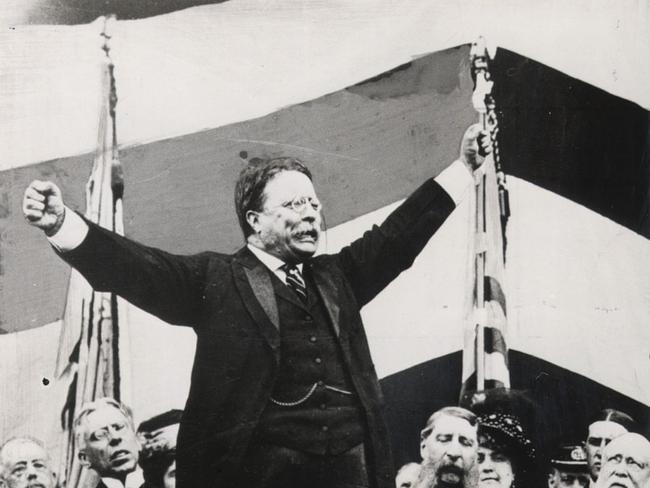
1912: WOODROW WILSON VS THEODORE ROOSEVELT
During a stump speech on October 14, former Republican president Theodore Roosevelt – running under the new “Bull Moose” party – was shot in the chest.
A 50-page speech in his pocket saved his life. Casually removing the bloodstained remarks, he stunned the crowd by continuing undeterred: “I don’t know whether you fully understand that I have just been shot,” he quipped, “but it takes more than that to kill a bull moose.”
He lost to Democrat Woodrow Wilson.
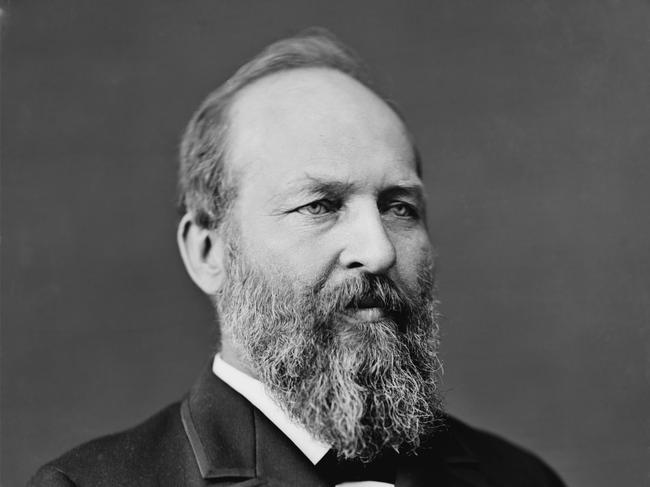
1880: JAMES GARFIELD VS WINEFIELD HANCOCK
A letter by Republican candidate James Garfield about the “Chinese problem” leaked showing his support for immigrant labour, which infuriated American workers.
The “Chinese problem” wasn’t a problem at all, said the alleged letter published 12 days before the election. Businesses should hire workers where they can get them “cheapest”.
But it was fake. A political dirty trick. Garfield had time to respond and show the forgery. Not all conspiracies are theories.
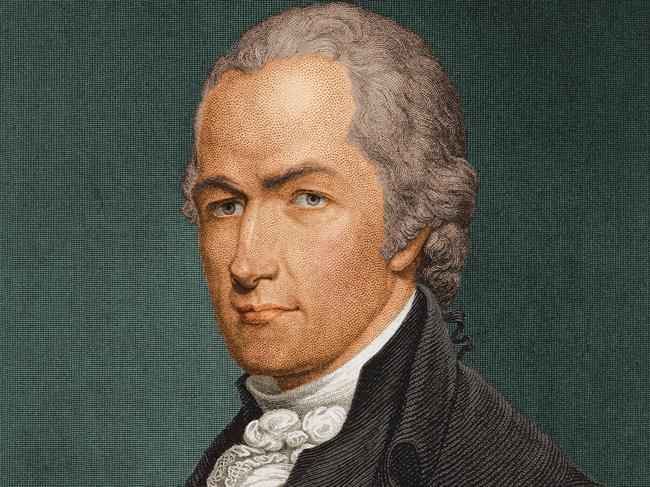
1800: THOMAS JEFFERSON VS JOHN ADAMS
In what is considered the first October surprise, Alexander Hamilton wrote a devastating letter on October 24 titled “The Public Conduct and Character of John Adams”.
“If we must have an enemy at the head of the government, let it be one whom we can oppose,” he wrote. “Who will not involve our party in the disgrace of his foolish and bad measures.”
Mr Adams was called far worse by his opponent Thomas Jefferson. But it was simpler times, just 24 years after the United States founding in 1776, and the barbed criticism from within his party was scandalous.
More Coverage
Originally published as Mysterious tweet signals October surprise could be on the way one month out of US presidential election





